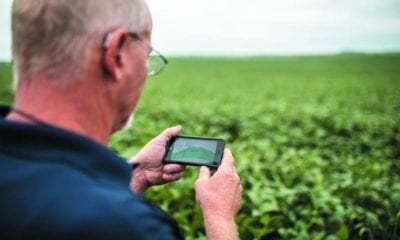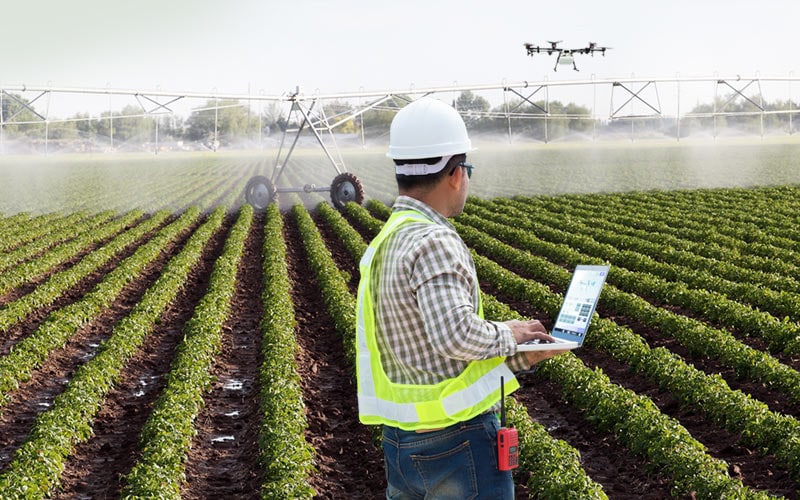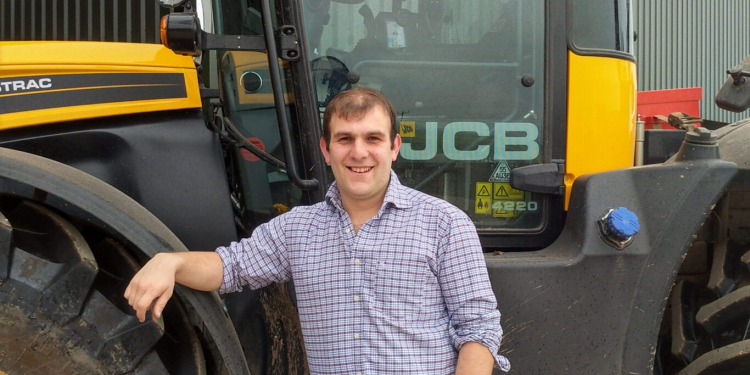Savvy agronomy is one of the best returns on money, according to Iain Wilson, who saved his salary in inputs in his first year as Farm Manager at Tulloch Farms near Laurencekirk.
“I think as farmers we often undervalue the time spent on agronomy, but time in the office and field planning is the best return on my money. I am better to pay someone to drive the tractor so I can give this aspect of the business proper thought.”
For the last six years, Iain has managed the 2000-acre mixed farm owned by Martin Gilbert of Aberdeen Standard, which includes 1650 acres of winter barley, oilseed rape, oats and winter wheat as well as 250 suckler cows on permanent and rotational grass in the arable system. He manages his own agronomy with the support of independent advice from long-standing farming cooperative Scottish Agronomy.
“When a tractor salesman shows you a tractor you don’t just buy it. You question the pros and cons, and it should be the same with chemicals. With Scottish Agronomy I have all the technical data from the trials that the coop carries out, the back-up of the expertise and experience of the agronomist to bounce ideas and the group discussions, all which help me to make informed decisions.

I was really green when I started and being a member has given me the confidence to analyse my agronomy and make decisions that are right for the farm. In the first year, I made savings that equated to more than my salary on chemical alone.”
Keen to bring sowing dates forward from mid-September to manage workload, Iain decided to carry out trials on the farm and is working with Scottish Agronomy to trial early sowing with seven different popular wheat varieties. He sowed a hectare of each on the first day of September all in the same field and will treat them the same throughout the year to monitor the best performance and variety to plant next season.
“I like the ethos and the whole farm approach; it’s not just about the chemicals. The whole country view is really helpful as well as the agronomists I work with, Greg, Andrew and Donald, have seen different approaches from all over Scotland and bring that knowledge and experience. I can learn from trials others have done, and they can put you in touch with other members to look at new ideas.”

Iain is part of Scottish Agronomy’s Laurencekirk agronomy group and he finds the discussions around the kitchen table – and now Zoom – have encouraged him to think differently about inputs and where savings can be made:
“The local knowledge from the other farmers was invaluable moving to an area I didn’t know, but also the discussion and experience of all the other farmers around what to try or not. I feel so fortunate to be part of a group that has a strong dynamic, is open-minded and has some of the most innovative, forward thinking and business minded farmers in the area. I have learned so much and there’s always plenty of banter and ribbing. It’s made me more ambitious and willing to try new things.
“For me, I enjoy the risk of making my own decisions. I can choose to miss a pass, which saves both money and time, and if it doesn’t work, I learn from it, and if it does, I have made savings. There’s been no major disasters so far! But equally there’s loads of support if you need it.”
According to the Association of Independent Crop Consultants (AICC), almost half of the UK’s arable land is now looked after by an independent agronomist, with that area expected to increase as Brexit evolves and new agricultural policy is introduced.
“I have lived and breathed Scottish Agronomy from a young age through my father, who was been a member for years and is a past chair, but I was still intimidated when I went to my first group meeting.
I was so aware of their experience compared to mine. I know from friends that they can be nervous about going along, or it’s just their dads that always go, but I would strongly urge my generation to get involved or at least to try out the Knowledge Hub on the Scottish Agronomy website which has all the latest data and advice. There is so much to be gained and nothing to lose. As chemistry becomes less effective or available, it’s so important to take control of our own agronomy.”
Scottish Agronomy is a farmer-owned cooperative offering the latest independent agronomy advice informed by its 20,000 trial plots. It offers Knowledge Hub (information only), Group and 1-1 agronomy and is currently offering a 30-day free trial of its Knowledge Hub. See scottishagronomy.co.uk to find out more.








